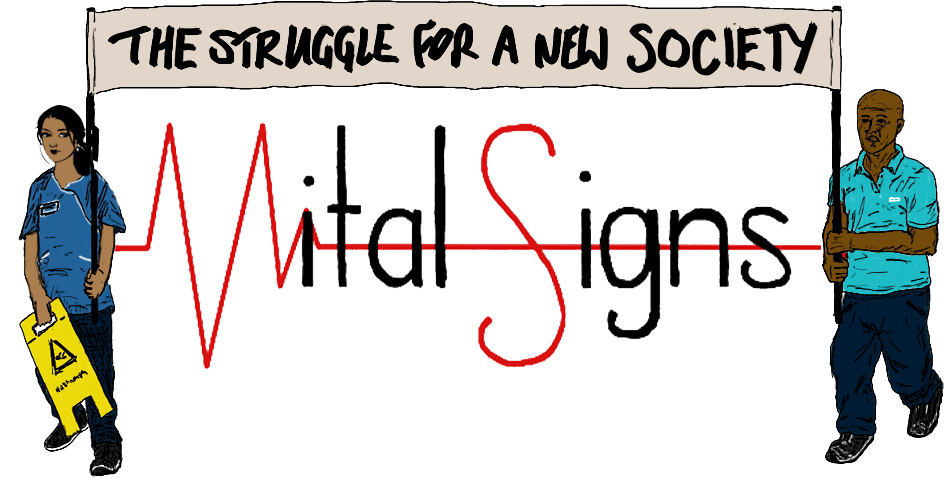This short report from fellow workers of our network raises important issues for our current struggle for higher wages. The action of the nurses show that management reacts to collective pressure from below, even if only a small group of workers are involved. While it is important to have a broad struggle for higher wages, this struggle might not come about through one central mobilisation, but might well be the result of workers taking action on a department or hospital level, which then inspires others to do the same. The short report also shows that we have to overcome a few barriers to broaden the struggle. We see the division between the local ICU nurses and the agency staff – the ICU nurses want to prove that they are more ‘cost effective’, while some of the agency nurses might not have been interested in the general work atmosphere, as they ‘stay only for a few shifts’. We need to address and overcome these divisions…
In this particular ITU some of the staff recognised that the use of agency nurses was increasing. There are two types of casual workers within this trust ‘agency’ and ‘bank’. Agency nurses are higher paid than bank staff, particularly if they are intensive care trained and as bank shifts on intensive care cannot be filled by regular ward nurses, it needs to be ITU staff, the pool of people to fill spaces in the rota is more limited. Agency workers are not staff belonging to the trust that they pick up shifts in, they are sometimes purely casual workers belonging to specific agencies, or they may be permanent workers in another nearby trust. Bank workers are employed by the trust and are often permanent workers already looking to pick up extra shifts. In this particular case, there had also been some concerns that paperwork wasn’t always being completed by the agency staff and therefore permanent staff were also having to pick up more work as a consequence.
A nurse put together some well thought out costings that proved if the trust were to increase the rate of pay for bank shifts for their permanent staff then the uptake of these shifts would be greater and the need for agency staff would be less. With an overall cost reduction. This was agreed on by management and indeed staff began to pick up more bank shifts.
This went on for a few months, however, management decided they would no longer be willing to stick to this pay increase and the bank incentives were removed. As a result, the decision was made by ITU staff to cancel their bank shifts on ITU as a protest to the removal of the incentives. The result of the permanent staff cancelling their bank shifts was that there were more agency nurses needed and also gaps in the rota. This act of protest by the team has led to management increasing the pay for bank ITU staff permanently. There are around 250 permanent nurses in intensive care, with about half of those regularly picking up bank work (one shift a month or more).




